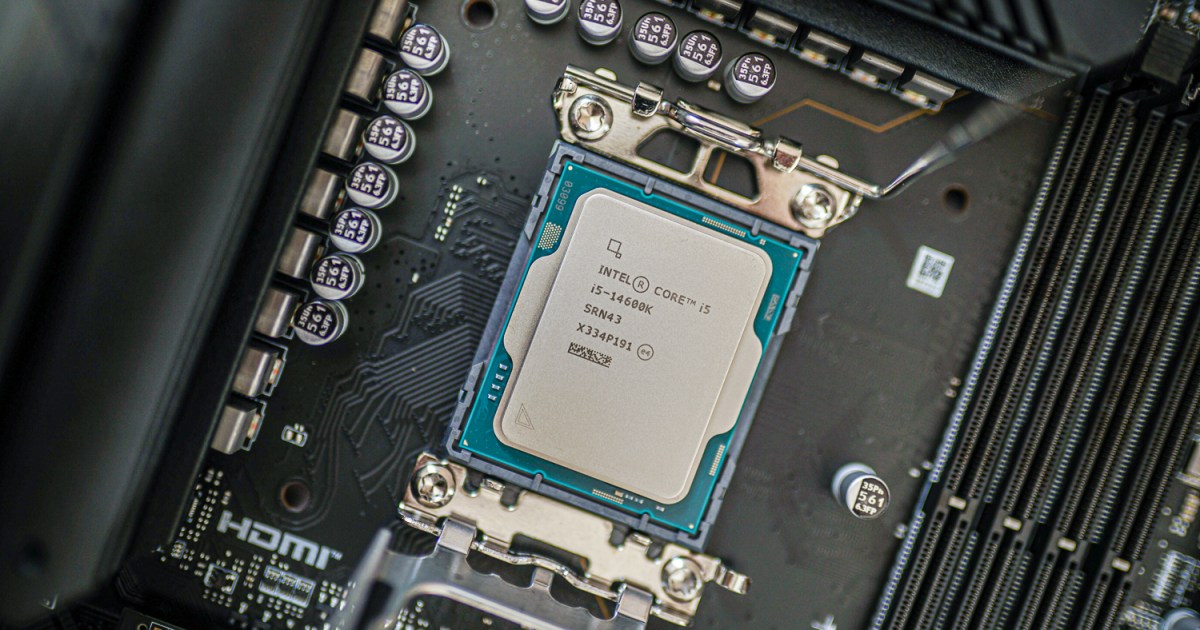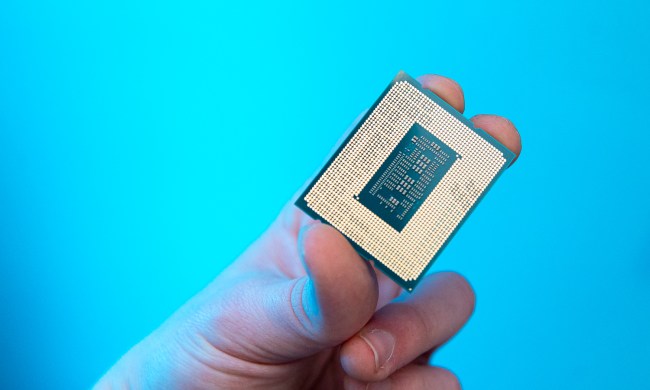Intel’s instability update cuts speed by up to 6.5% — but don’t panic yet
Now that Intel has released its big update to address instability on 13th-gen and 14th-gen CPUs, users are testing the performance claims.

 Jacob Roach / Digital Trends
Jacob Roach / Digital Trends
Intel has finally gotten a grip on its disastrous instability problems that have been the bane of some of Intel’s best processors for nearly a year, including the Core i9-13900K and Core i9-14900K. The update was released last week, and users are now taking it out for a spin. And unfortunately, some are reporting performance drops of up to 6.5%.
A user on the Chiphell forums tested the new BIOS patch that is supposed to address instability on Intel’s 13th-gen and 14th-gen CPUs. The user twfox saw a drop of around 6.5% with the Core i9-13900K in Cinebench R15’s single-core test, at least compared against Wccftech’s own tests. In the more recent Cinebench R23, the Core i9-14900K dropped about 2% of its multi-core score, falling behind AMD’s Ryzen 9 7950X.
Those aren’t the severe performance drops we saw when Intel first tried to address this issue. In the first round of motherboard updates, users saw drops of anywhere from 9% up to 20%, and in multiple applications. Here, the performance differences are minor, and they shouldn’t impact gaming performance at all. Even so, Intel’s original post announcing the BIOS update said that the performance differences should be “within run-to-run variation,” including in tests like Cinebench.
Although the performance loss shouldn’t be meaningful in the vast majority of applications, it’s interesting to see where the Core i9-13900K and Core i9-14900K have ended up now that the dust has settled on Intel’s instability fiasco. It also raises a lot of questions as both Intel and AMD move on to new generations of processors.
AMD has already released its Zen 5 CPUs, including the Ryzen 9 9950X and Ryzen 9 9900X. However, they were met with a lukewarm reception, prompting AMD to update the power specifications of the lower-end Ryzen 7 9700X and Ryzen 5 9600X.
On Intel’s side, the company is gearing up to launch its 15th-gen Arrow Lake processors, which are expected to arrive before the end of October. With new Intel chips on the way, and performance-changing updates for both Zen 5 and Intel’s last two generations, it’ll be important to pay close attention to performance numbers in the next round of CPU reviews.
Jacob Roach is the lead reporter for PC hardware at Digital Trends. In addition to covering the latest PC components, from…
Intel ‘disgustingly’ rejected some faulty CPU returns, YouTuber says
Intel has finally broken its silence on the instability issues plaguing 13th-gen and 14th-gen CPUs over the last few months, but it seems we've only gotten a half answer to the problem. Gamer's Nexus posted a video breaking down what the YouTube channel called "Intel's biggest fuckup" to date and showcasing how the problem goes beyond the reasoning Intel shared this week.
If you're not up to speed, Intel posted a message on its forums pinning blame for instability on improper voltage requests within the CPU microcode. Basically, the processor was getting improper power, leading to instability and degradation within the CPU. That's not the only problem with 13th-gen and 14th-gen CPUs, however. Some CPUs are impacted by a manufacturing defect that isn't fixable with a microcode update, and Intel didn't address that in its public statement.
Intel breaks silence on disastrous instability problem
Intel has finally provided an update on instability issues on 13th-gen and 14th-gen CPUs. An update posted by Thomas Hannaford, Intel's communications manager, pins the instability on an error in the microcode that requests incorrect voltage numbers, leading to instability in the processor.
The company is releasing a microcode patch that "addresses the root cause of exposure to elevated voltages." Intel says that update should arrive in mid-August. In the meantime, Intel encourages users who are experiencing instability issues to reach out to its support team for assistance. The microcode error was discovered after Intel reviewed processors that were returned due to stability issues, suggesting Intel wants to make the situation right with affected users -- though it stopped short of apologizing for a months-long drought on communication on the matter.
Intel can’t stay silent for much longer
"I'll never buy an Intel CPU at launch again."
That's what one Reddit user told me after I spoke with them about instability issues with their Core i9-13900K. The user said they went through four Core i9-13900Ks over several months, leaving them without a functioning gaming PC for three months due to repairs. Another told me they slowly replaced every component in their system expect for the CPU, saying they've "NEVER had an issue with Intel products." This time, though, the Core i9-14900K was the problem.

 Hollif
Hollif 
































.jpg&h=630&w=1200&q=100&v=a905e78df5&c=1)



